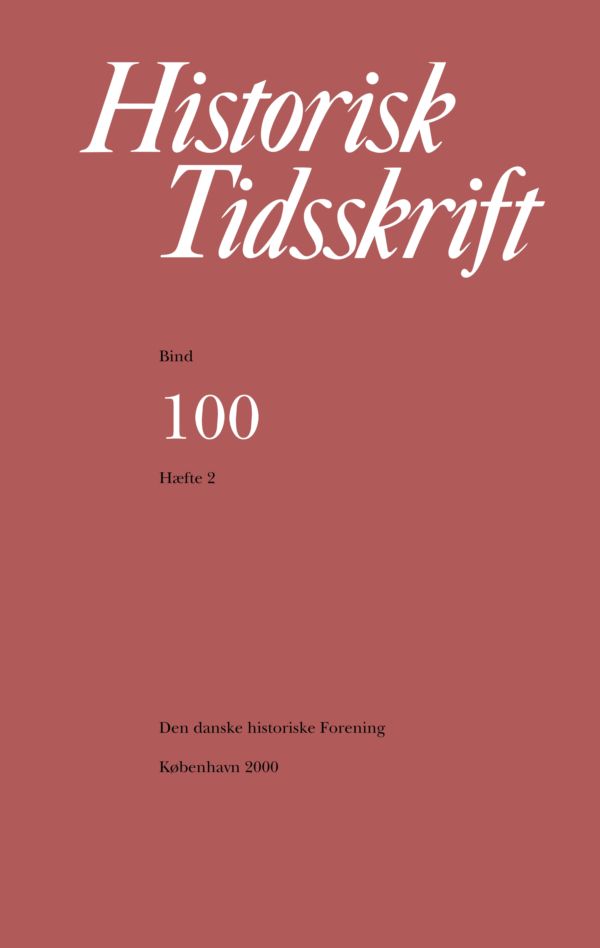Den rationelle bonde. En historisk-antropologisk analyse af traditionalismen i dansk bondekultur
Resumé
The Rational Peasant. A Historical-Anthropological Analysis of Traditionalism in Danish Peasant CultureThe old conception among rural historians that the eighteenth century Danish peasant was conservative, traditionalist and irrational has been subjected since the 1970s to a revisionist view in which the peasants emerge as far from conservative and irrational. To be sure, some historians have warned against the danger of generalising, but in present-day writings the peasants frequently appear as distinctly industrious, economising and rational in the modern sense of the word. The present analysis contends that this conception of the peasant as a modern, rational, enterprising innovator has no basis in reality and no foundation in extant sources except for a few scattered instances, which can hardly be construed as representative examples of the peasant culture of the time. On the contrary, the sources abundantly demonstrate that the Danish peasants were conservative, unenlightened and tradition-bound. They avoided every form of change and innovation, unless it was forced upon them by the state, the landowners or circumstances. Their conservatism lasted, moreover, well into the nineteenth century, since its roots lay deep in various cultural phenomena, which unlike the old system of field cultivation survived the great agricultural reforms of the eighteenth century. The study therefore undertakes an analysis of Danish peasant culture in order to identify the ways in which its conservatism was expressed and to uncover its causes. The theoretical starting point of the analysis is the classical thesis of the American anthropologist George M. Foster regarding "the image of limited good" among peasant cultures everywhere. According to Foster these traditionalist cultures are governed by the conception that all goods are limited and never sufficient. Life in peasant society is therefore characterised by a distributive struggle, in which the peasant sees the one's gain as the other's loss. This in turn generates jealousy, envy, and animosity in a social economy conceived as a zero-sum game. When Foster's thesis is applied to Danish peasant culture during the period roughly from the seventeenth to the nineteenth century, a significant number of otherwise inexplicable and irrational phenomena suddenly become meaningful and reasonable. It is argued in this study not only that the Danish peasants were conservative traditionalists, but also that their conservatism was - given their cognitive orientation - quite rational. The peasants were coerced by social pressures to act in accordance whith their own norms as well as those of their surroundings, if they were to maintain their way of life and their position in the community. It is true that in any society there are always some individuals and groups who defy societal norms, and thus historians have been able to cite instances of peasants who correspond to the prevalent view of the industrious innovator. But these instances constitute only a tiny minority among the contemporaneous peasantry. By drawing on anthropological methods and theories a new and different conception of traditionalist peasant culture now emerges, according to which it can be explained why the peasants clung so stubbornly to their old ways of thinking despite the efforts of numerous Enlightenment writers to promote "rational" agriculture. This is tantamount to a basic rejection of the present revisionist conception of the peasant as an economically calculating investor in the neoclassical sense. That conception is both erroneous and anachronistic. It is based on sources which in no way are representative of Danish peasant culture in general. Translated by Michael WolfeDownloads
Publiceret
Citation/Eksport
Nummer
Sektion
Licens
Ophavsret til bidrag i Historisk Tidsskrift tilhører forfatterne og Den danske historiske Forening som udgiver af Historisk Tidsskrift. For illustrationer gælder den ophavsret, som står anført i billedteksten. Ophavsretslovens almindelige bestemmelser gælder, hvilket vil sige, at ophavsretten gælder i 70 år efter forfatterens død. Bidrag i Historisk Tidsskrift må derfor, med forbehold for en ”moving wall” på tre år, frit downloades, læses, gemmes, anvendes og citeres (med kildeangivelse) i privat og videnskabelig sammenhæng, men de må ikke helt eller delvis genudgives af tredjepart, heller ikke i redigeret form, uden tilladelse fra forfatterne og Den danske historiske Forening. Henvendelse skal i så fald rettes til Historisk Tidsskrifts redaktion på histtid@hum.ku.dk.





